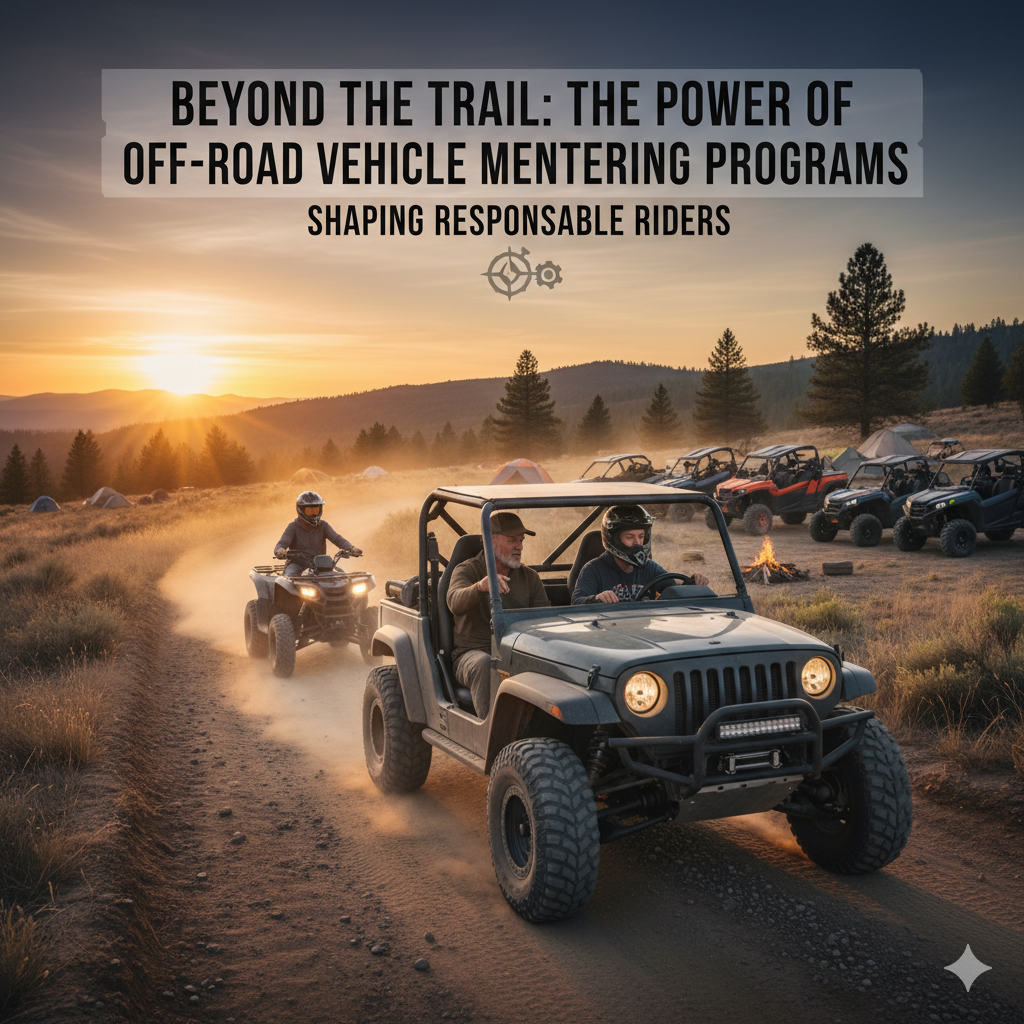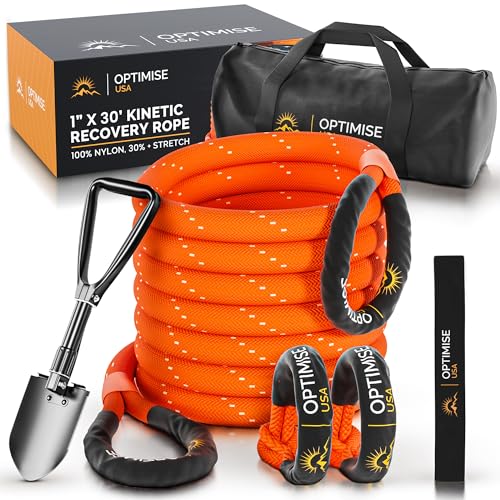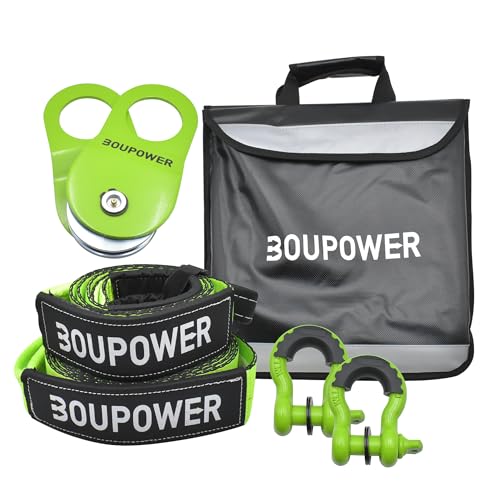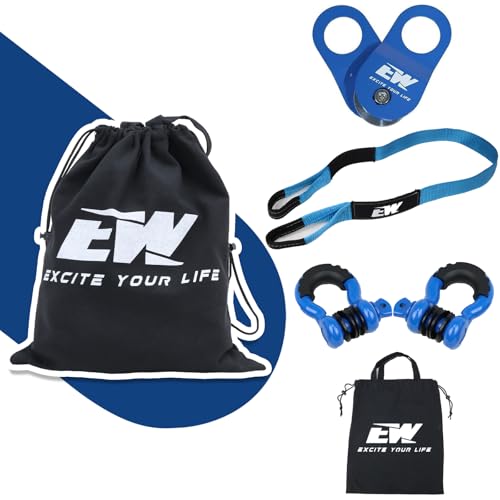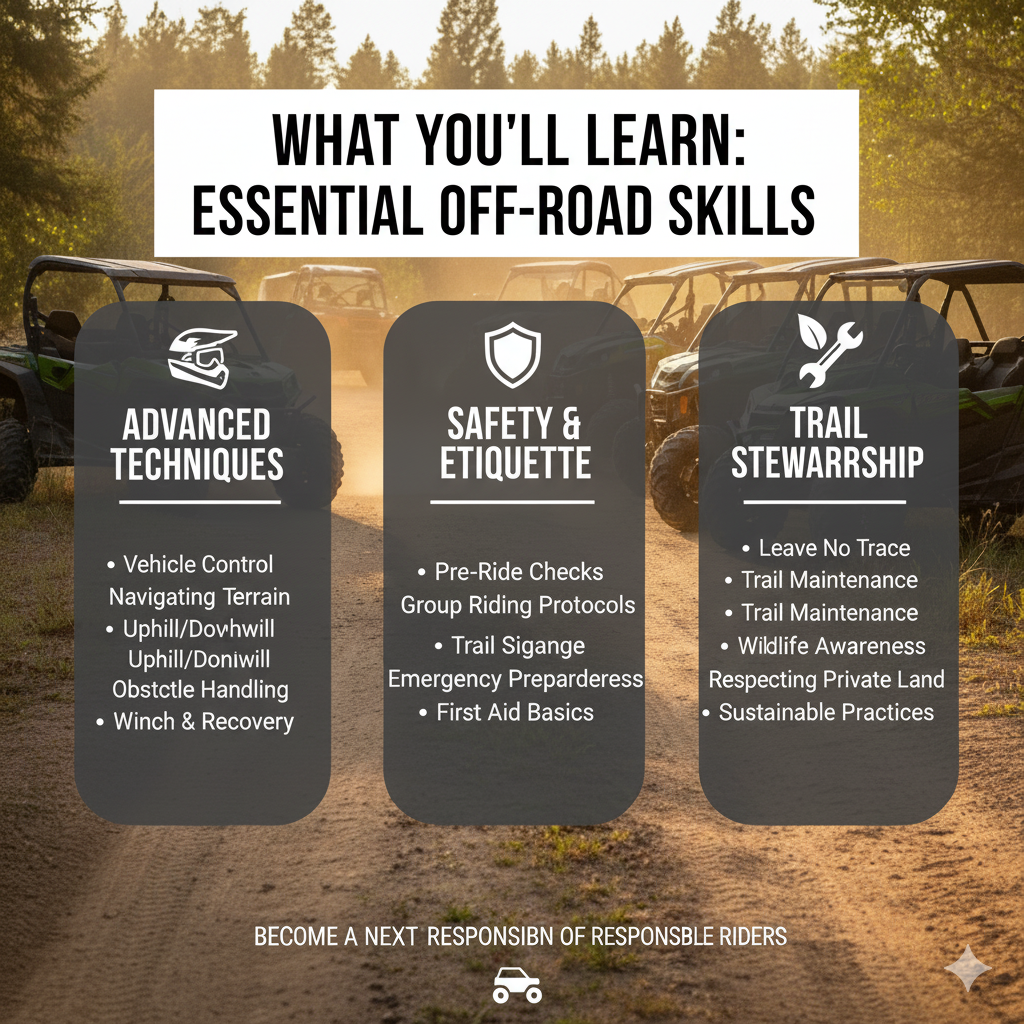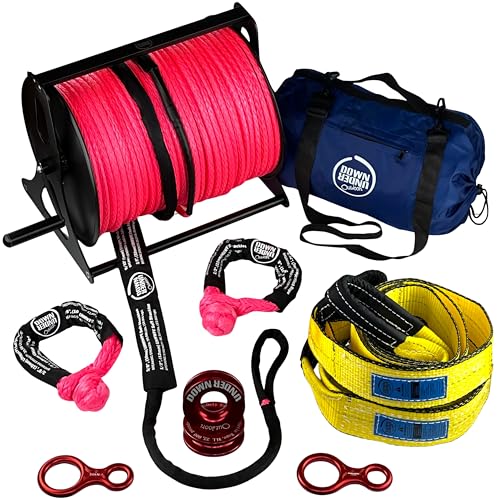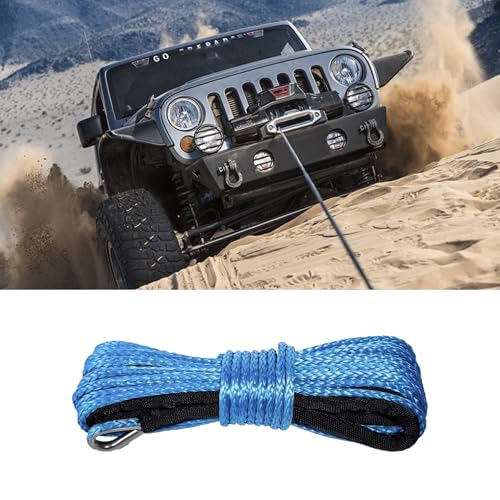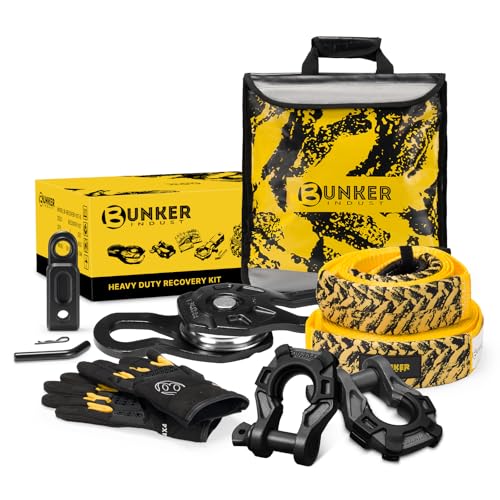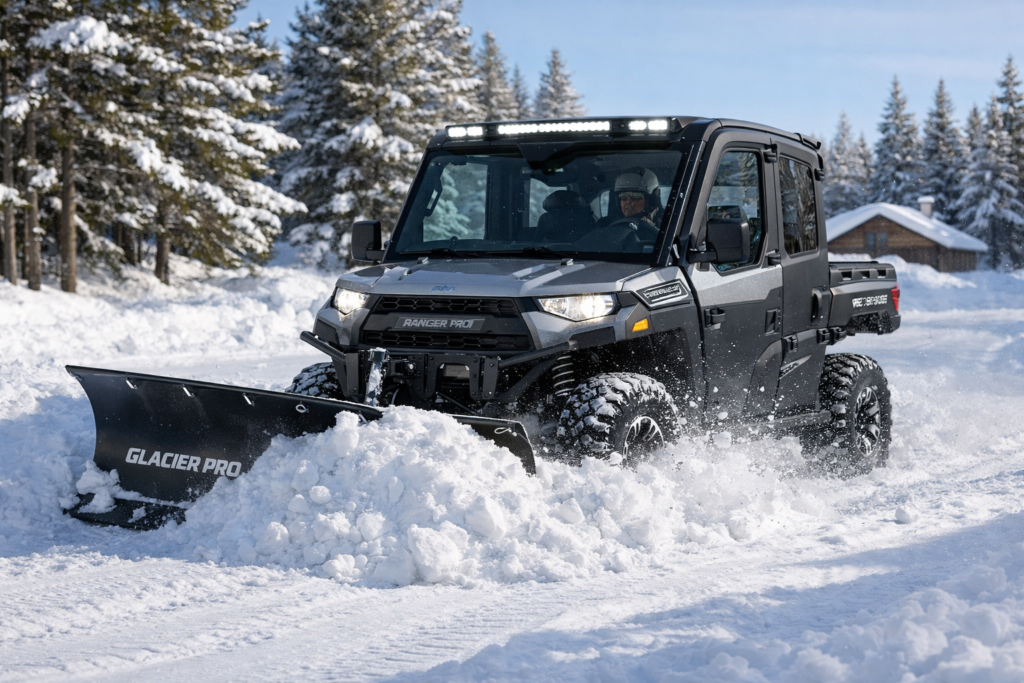The first time I sat behind the wheel of an ATV, I was overwhelmed. The power, the terrain, the sheer number of things that could go wrong—it was exhilarating, but also intimidating. I was lucky enough to have an experienced rider take me under their wing, teaching me not just how to handle the machine, but how to respect the trail.
That experience was invaluable, and it’s the core reason why I believe so strongly in off-road vehicle mentoring programs.
Off-roading is more than just a hobby; it’s a culture.
It’s a blend of mechanical knowledge, driving skill, and a deep commitment to environmental stewardship.
These are not skills you can fully learn from a manual or a YouTube video.
They are passed down, one lesson at a time, from a seasoned veteran to an eager newcomer.
In this comprehensive guide, we’re going to explore the world of off-road vehicle mentoring programs.
We’ll look at the immense benefits they offer to both the mentor and the mentee, examine successful models like those using ATVs for youth development, and provide a step-by-step blueprint for how you can establish a program within your own off-road club or community.
The future of our trails depends on teaching the next generation to ride safely and responsibly.
Phase 1: The Foundation of Mentorship—Why It Matters
Mentoring in the off-road world is a critical component of safety, skill development, and the preservation of our riding areas.
It’s a structured way to ensure that the passion for ATVs and UTVs is passed on with wisdom and responsibility.
The Benefits for the Mentee: From Novice to Navigator
For a new rider, a mentor is a lifeline.
They provide a safe, accelerated path to competence that formal training alone cannot match.
- Accelerated Skill Acquisition: A mentor can teach advanced techniques—like proper line selection in a rock garden, safe winching procedures, or how to handle a side-hill recovery—in real-time, on the trail. This hands-on, immediate feedback is far more effective than classroom instruction.
- Safety and Risk Mitigation: Mentors instill a culture of safety. They teach pre-ride checks, the importance of proper gear, and how to assess and avoid dangerous situations. This drastically reduces the likelihood of accidents and mechanical failures.
- Mechanical Confidence: Many new riders are intimidated by the mechanics of their machine. A mentor can demystify maintenance, teaching basic repairs, troubleshooting common issues, and the best practices for vehicle upkeep.
- Trail Stewardship and Ethics: Perhaps the most important lesson is the “Leave No Trace” philosophy. Mentors teach respect for the environment, the importance of staying on marked trails, and how to interact respectfully with other trail users.
The Rewards for the Mentor: Giving Back to the Community
Mentoring is a two-way street.
The benefits for the experienced rider are just as profound.
- Reinforcing Expertise: Teaching a skill is the best way to master it. Explaining complex concepts like differential lock or suspension tuning forces the mentor to articulate their knowledge, solidifying their own expertise.
- Community Building: Mentoring programs are the backbone of strong off-road clubs. They foster loyalty, build trust, and ensure a steady stream of engaged, responsible members who will eventually take on leadership roles.
- Personal Fulfillment: There is immense satisfaction in watching a new rider gain confidence and skill. It’s a direct way to contribute to the positive image and future of the off-road community.
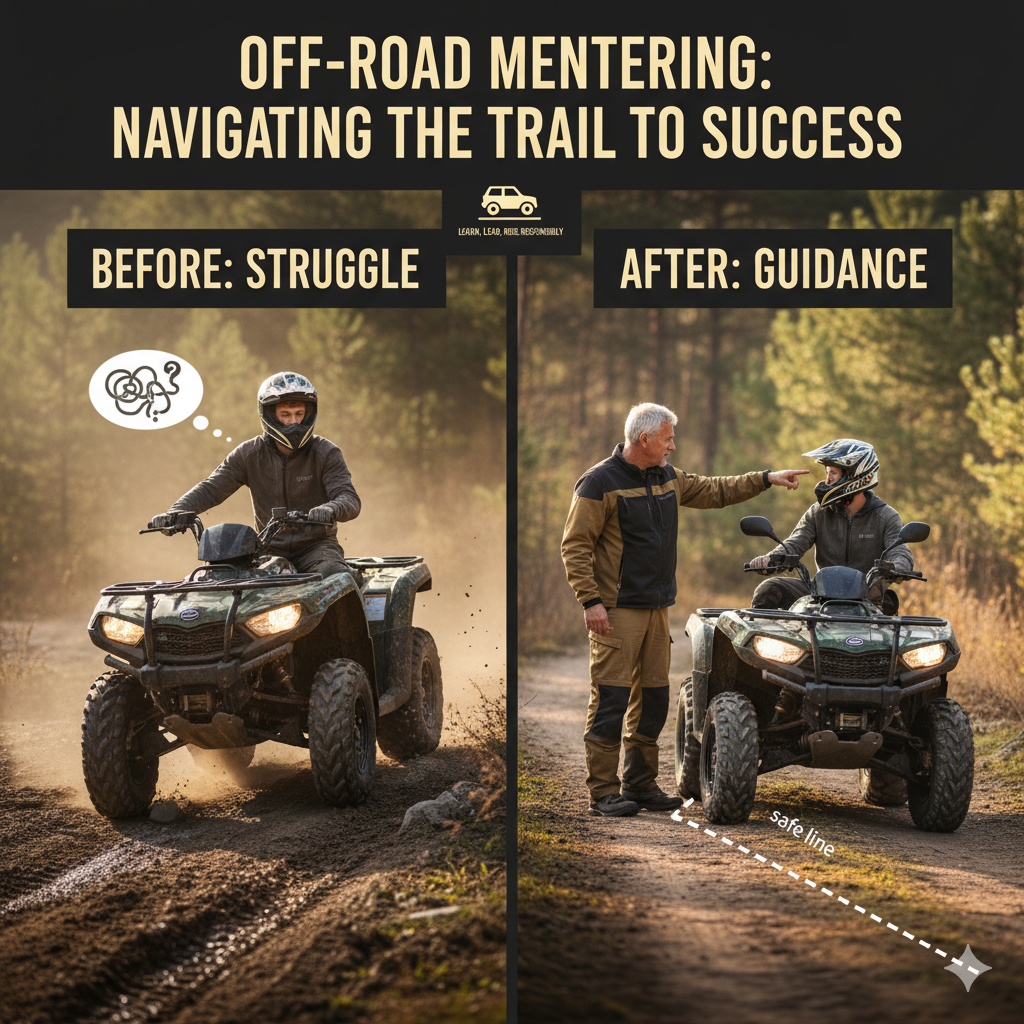
Phase 2: Models of Successful Mentoring Programs
Mentoring programs take many forms, from formal non-profits to informal club initiatives.
Understanding these models can help you decide which approach is best for your community.
The Youth Development Model: NYPUM
One of the most established and successful models is the National Youth Project Using Minibikes (NYPUM).
While focused on minibikes, the core concept is directly applicable to ATVs and UTVs.
- Concept: NYPUM uses the minibike as a motivational tool to engage at-risk youth. The youth must demonstrate responsibility, improve academic performance, and adhere to behavioral standards to earn riding time.
- Structure: It’s a structured, long-term program where mentors provide guidance on life skills, education, and personal development, all while teaching safe riding techniques. The vehicle is the hook; the mentorship is the real lesson.
- Key Takeaway: The vehicle is a means to an end. The most effective programs use the passion for off-roading to teach broader life skills like discipline, problem-solving, and accountability.

The Club-Based Trail Guide Model
Many off-road clubs, such as the Northern Virginia Jeepers Association, have formalized their mentorship through a “Trail Guide” or “Trail Leader” program.
- Concept: Experienced members are trained and certified to lead group rides. They act as mentors to the entire group, teaching trail etiquette, safety, and recovery techniques during the ride.
- Structure: This often involves online courses, in-person training, and a probationary period where the mentor-in-training shadows a senior guide. The focus is on creating a standardized, high-quality experience for all club members.
- Key Takeaway: Standardization is key. By creating a formal process, you ensure that all mentees receive the same high level of instruction and that all mentors are equipped with the necessary leadership and safety skills.
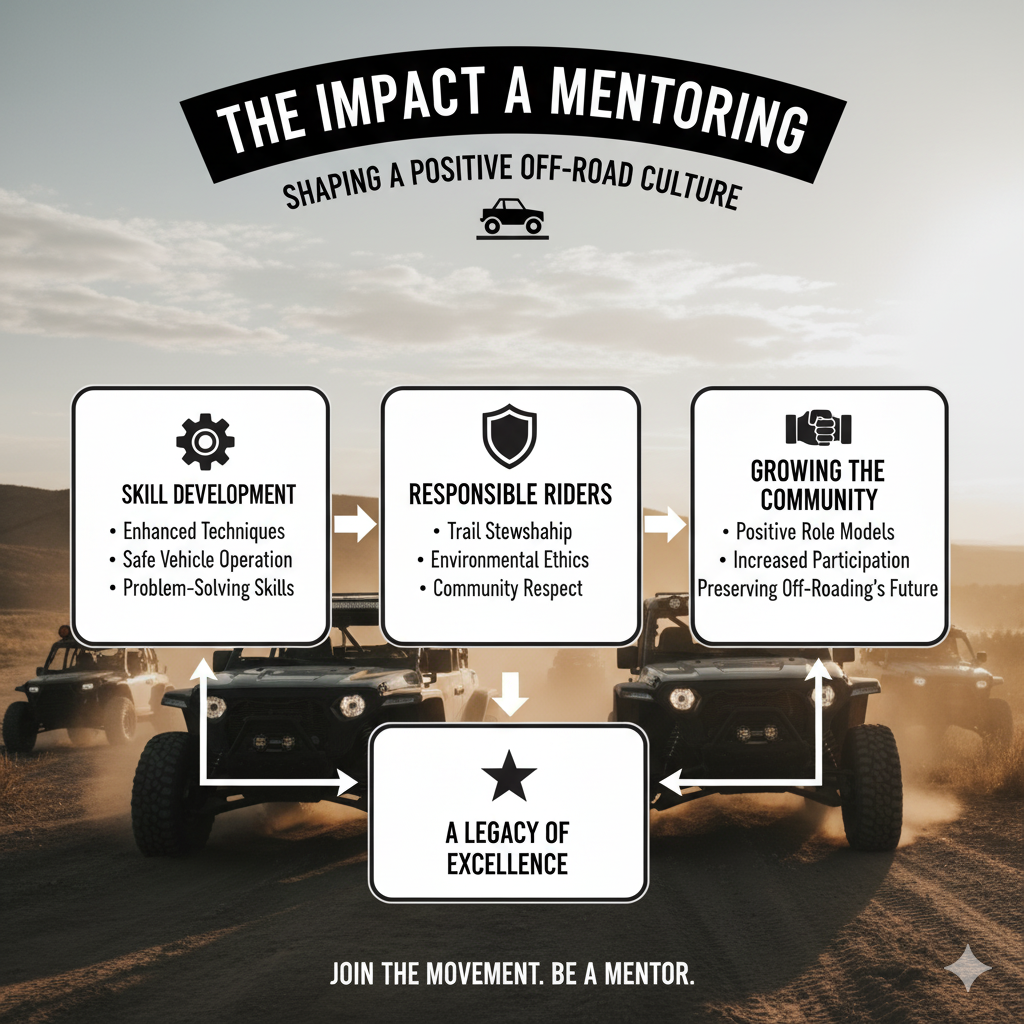
Phase 3: Blueprint for Starting Your Own Program
Ready to turn your passion into a structured program?
Here is a five-step guide to establishing effective off-road vehicle mentoring programs.
Step 1: Define Your Mission and Scope
Before anything else, clearly define what your program will achieve.
- Target Audience: Are you focusing on youth (ages 10-16), new adult riders, or new owners of a specific vehicle (e.g., Honda Pioneer)?
- Program Goals: What is the measurable outcome? (e.g., “To certify 20 new riders in safe ATV operation and trail ethics this year,” or “To pair every new club member with a senior mentor for their first three rides.”)
- Legal and Insurance Review: Consult with your club’s insurance provider. Any formal program involving minors or public instruction will require specific liability waivers and insurance coverage.
Step 2: Mentor Recruitment and Training
The quality of your program rests entirely on the quality of your mentors.
- Selection Criteria: Mentors should be experienced riders (5+ years), possess excellent communication skills, have a clean riding record, and demonstrate a strong commitment to trail ethics.
- Mentor Training: Provide a standardized training session. This should cover:
- Teaching Techniques: How to break down complex skills into simple steps.
- Safety Protocols: Emergency response, first aid basics, and communication procedures.
- Program Curriculum: A clear outline of the skills and knowledge to be covered in the program.
Step 3: Curriculum Development
A structured curriculum ensures consistency and covers all critical areas of off-roading.
| Module | Key Topics to Cover | Mentee Outcome |
|---|---|---|
| Vehicle Basics | Pre-ride checks (T-CLOCS), basic maintenance, fluid checks, proper loading. | Mentee can perform a safe pre-ride inspection and basic maintenance. |
| Riding Fundamentals | Proper body position, throttle control, braking techniques, turning, hill climbing/descending. | Mentee can safely operate the vehicle on varied terrain. |
| Trail Ethics & Safety | “Leave No Trace,” trail signage, yielding, group ride etiquette, emergency procedures. | Mentee understands and practices responsible trail use. |
| Recovery & Troubleshooting | Winching safety, tow strap use, basic field repairs, tire repair. | Mentee can safely recover a stuck vehicle and perform minor repairs. |
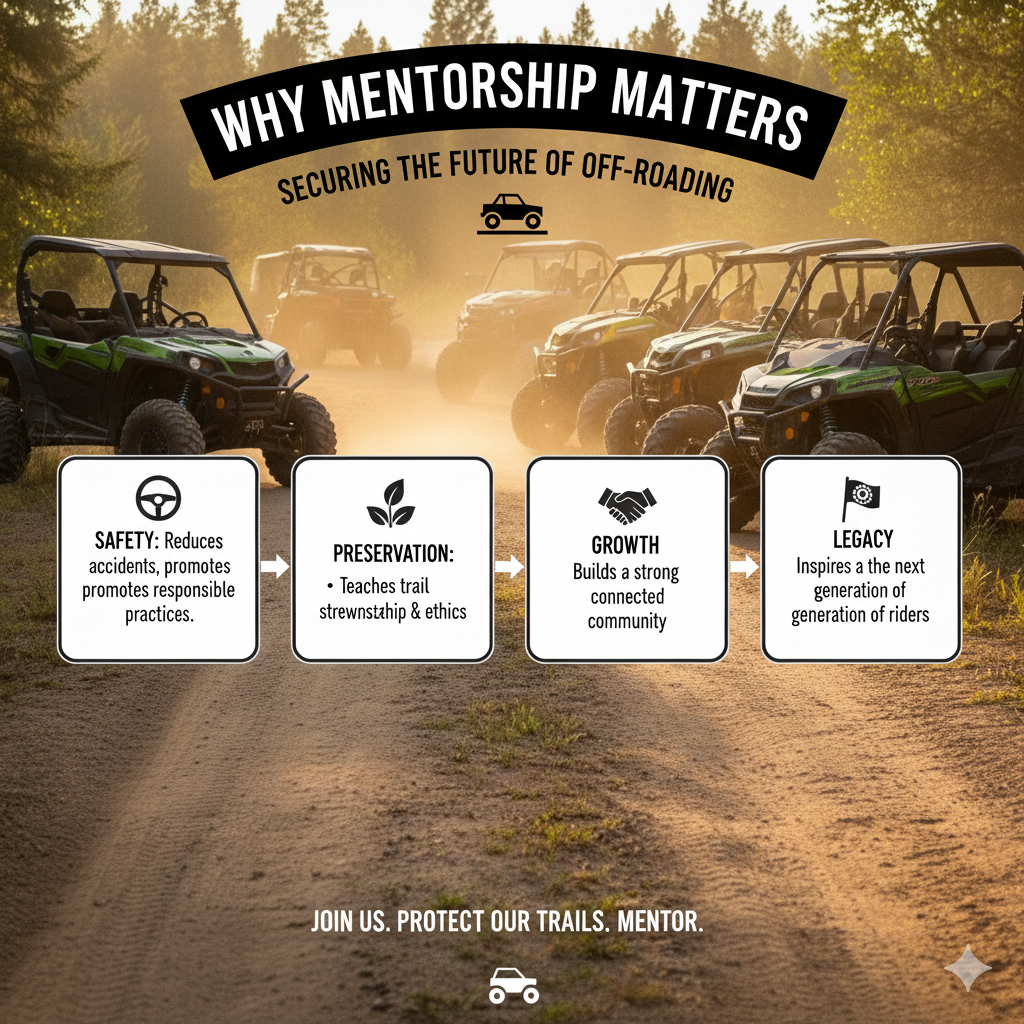
Step 4: Pairing and Program Execution
The mentor-mentee pairing is crucial for success.
- Matching: Try to match mentors and mentees based on riding style, vehicle type (ATV vs. UTV), and availability.
- Initial Meeting: The first meeting should be off-trail, focused on setting expectations, reviewing the curriculum, and signing the necessary waivers.
- Scheduled Rides: Plan a series of structured rides focused on specific skills (e.g., “Hill Climbing Day,” “Technical Rock Crawling”).
Step 5: Evaluation and Feedback
A successful program is one that constantly improves.
- Mentee Feedback: After the program, collect anonymous feedback from mentees on their mentor and the curriculum.
- Mentor Debrief: Hold a session with all mentors to discuss challenges, successes, and suggest improvements for the next cycle.
- Certification: Consider a simple “graduation” or certification process to recognize the mentee’s achievement and encourage continued safe riding.
Phase 4: Promoting Your Program and Finding Participants
Once your program is structured, you need to get the word out.
- Leverage Existing Networks: Promote your program through local off-road forums, Facebook groups, and at local UTV dealerships.
- Partner with Local Organizations: Reach out to youth organizations (like 4-H or Scouts), high school shop classes, or community centers. They are often looking for unique, hands-on activities for their members.
- Host a “Mentor Meet & Greet”: Organize a free, non-riding event where potential mentees can meet the mentors, ask questions, and see the vehicles. This lowers the barrier to entry and builds trust.

Conclusion: Securing the Future of Off-Roading
Off-road vehicle mentoring programs are the unsung heroes of the off-road community.
They are the mechanism by which we ensure that the next generation of riders is not only skilled but also deeply committed to the principles of safety, respect, and trail preservation.
Whether you are an experienced rider ready to share your wisdom or a new enthusiast looking for guidance, I urge you to seek out or start a mentoring program.
The investment of time and effort pays dividends in safer trails, stronger communities, and the sheer joy of watching a new rider confidently navigate a challenging obstacle for the very first time.
Let’s commit to passing on the passion, one safe and responsible ride at a time.
Happy Trails!
References
[1] Honda News – Honda Celebrates 50th Anniversary of National Youth Project Using Minibikes (NYPUM)
[2] ATV Safety Institute (ASI) – ATV Safety
[3] Northern Virginia Jeepers Association – Trail Guide Program
[4] Chronus – 5 Step Guide for Successful Mentorship Programs
[5] ATV Minnesota – Club Startup Kit

